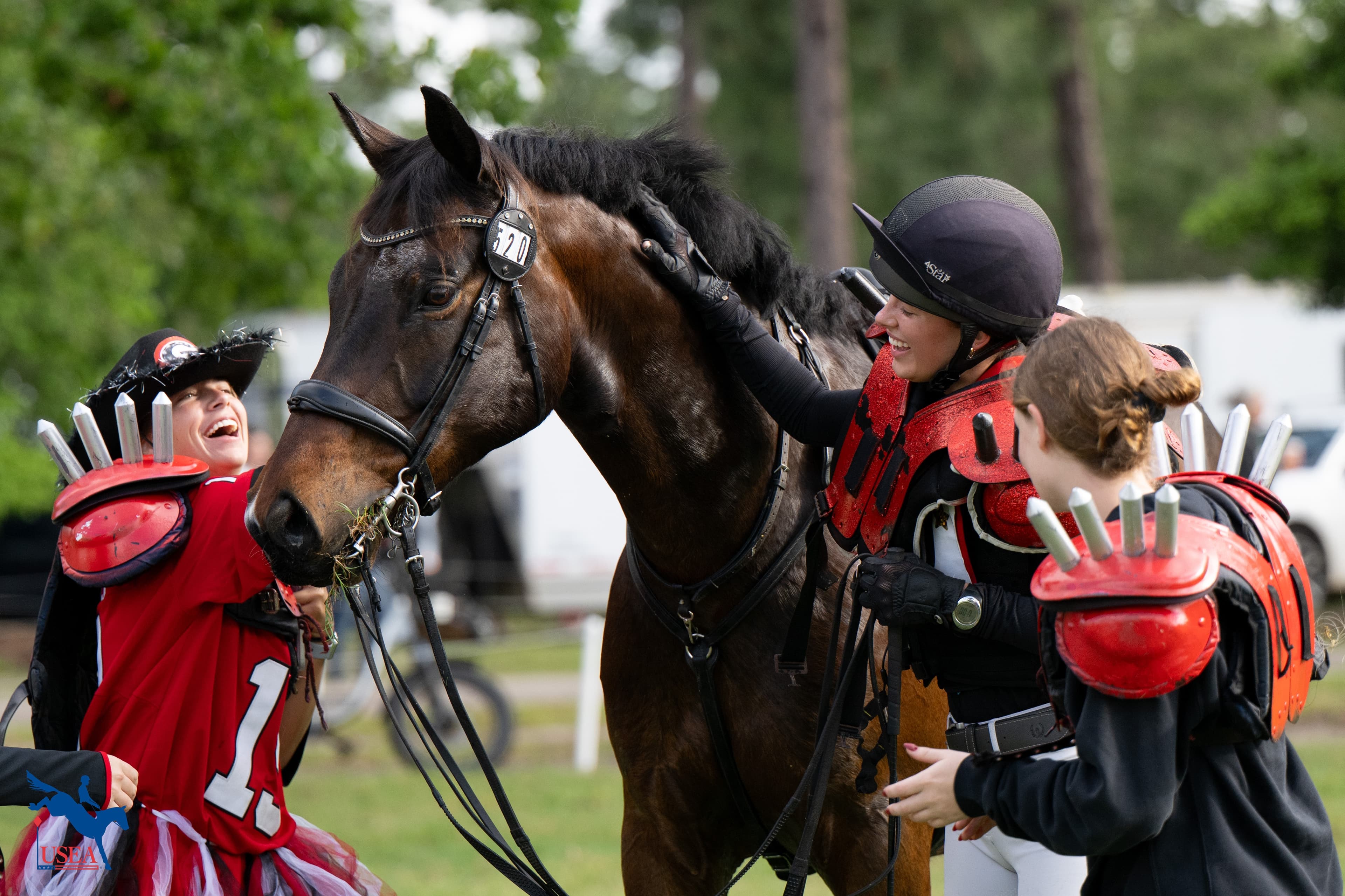Safety In Eventing: How Far We’ve Come
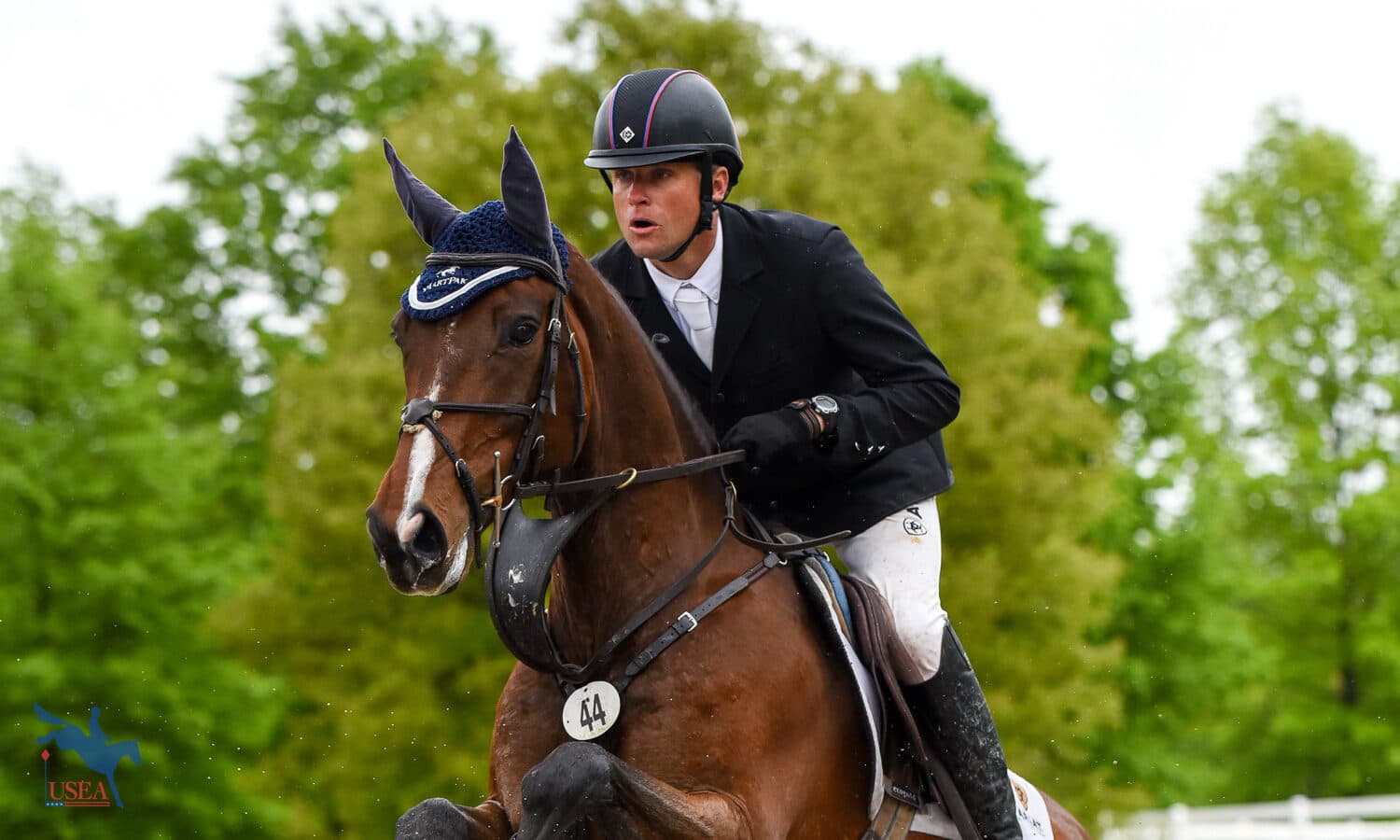
The United States Eventing Association considers the safety of every horse and rider that participates in the sport of eventing to be of the utmost importance and concern. Over the last several years, the sport has made incredible progress towards implementing additional rules and processes to ensure the safety of both human and equine competitors. There is a wealth of information available to both our members and the general public about the committees and programs in place that focus solely on efforts to make the sport safer for both horse and rider.
Increasing awareness and knowledge of safety in eventing involves the education of all the different participants from the horse, rider, and trainer to the officials, course designers, and course builders. The goal of the USEA is to provide as many opportunities as possible for all parties to increase their knowledge and work towards making eventing a safer sport, from the Training Program for Eventing Officials, Instructors’ Certification Program, and Continuing Education Clinics to the many educational material produced by the USEA.
The USEA Safety and Equine Welfare Committee
In May of 2017, the USEA Board of Governors approved a restructuring of the USEA Safety and Equine Welfare Committee and Cross-Country Safety Task Force so that the committee as a whole can better focus on specific areas of importance and concern. The USEA Safety and Equine Welfare Committee now consists of three targeted subcommittees: Rider Safety, Equine Safety and Welfare, and Cross-Country Safety. The three subcommittees each focus on their specific area of safety, supporting research and developments in their particular areas.
Currently, the Cross-Country Safety subcommittee is conducting a review of literature and developing guidelines for course designers and builders with regard to ground lines for fences.
Additionally, along with the USEF and FEI, the USEA Cross-Country Safety subcommittee collects data and information on all major accidents for analysis to see if anything can be learned.
Read more news about the USEA Safety and Equine Welfare Committee:
- Frangible Fence Equipment Test Developed (March 20, 2019)
- FEI Eventing Updates (March 8, 2019)
- VIDEO: Cross-Country Designs for the Future (January 16, 2019)
- USEA Launches Online Test to Certify Eventing Safety Coordinators; Reorganizes Safety Committee (August 10, 2017)
- USEA Appoints Cross-Country Safety Task Force to Explore Course and Obstacle Design (June 23, 2014)
USEA Frangible Technology Research
In an effort to clarify and standardize terminology usage within the organization, and as the original study expands to explore additional topics, the USEA Collapsible Fence Technology Study has been rechristened the USEA Frangible Fence Technology Research. The terms “frangible,” “collapsible,” and “deformable” effectively carry the same meaning and can be used interchangeably. The USEA will move forward using the term “frangible” to refer to all types of frangible, collapsible, and deformable cross-country fences, regardless of the specific technology being employed.
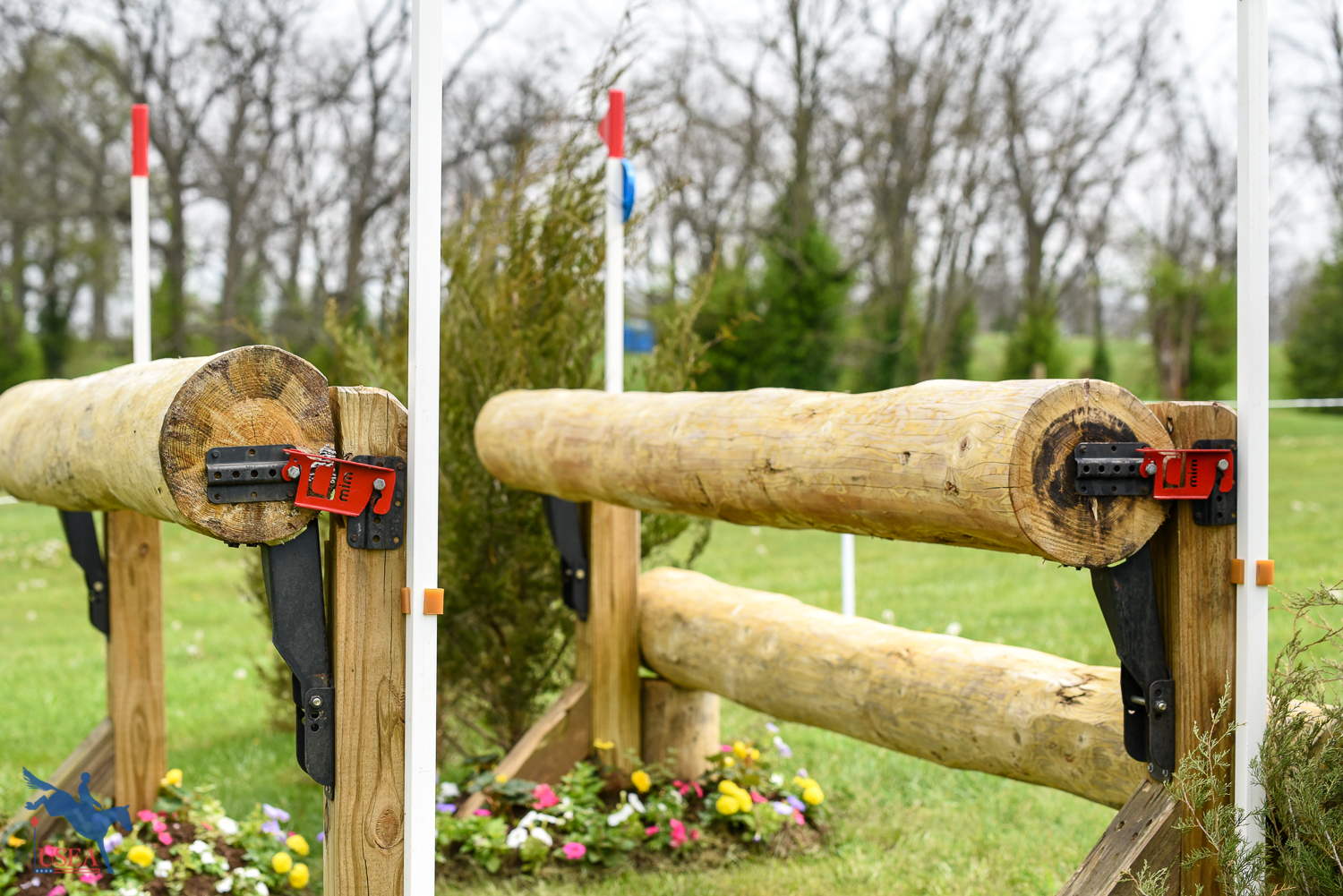
The original Collapsible Fence Technology Study being conducted through the University of Kentucky concluded in 2018 and the organization will look to continue research based on their findings. Look for the article summarizing the findings in the May/June issue of Eventing USA.
Read more about USEA Frangible Technology Research:
- VIDEO: Safety Concepts for Every Ride (May 8, 2019)
- USEA Statement: The Time is Now for Frangible Fence Technology (October 18, 2017)
- USEF to Continue Eventing Frangible Technology Grant Program in 2018 (February 5, 2018)
- Exploring Collapsible Technology for Cross-Country Jumps (May 10, 2017)
- USEA Collapsible Fence Study Year One Update (January 9, 2017)
- USEA Collapsible Fence Study (September 14, 2016)
- USEA Collapsible Fence Study Garners Tremendous Response (May 13, 2016)
USEA Equine Medical Research Fund
In 2014, the USEA began assessing each starter at a USEA recognized event $1.00 that is then put toward equine medical research that benefits sport horses and supports both the USEA Cardiopulmonary Research Study as well as other relevant studies.
Read about the studied supported by the Equine Medical Research Fund:
- USEA Board of Governors Votes to Support Four Studies with the Equine Medical Research Fund (September 27, 2018)
- VIDEO: Gastrointestinal Health and Management (July 25, 2018)
- VIDEO: USEA Funded Equine Health Research (July 11, 2018)
- Update from the Equine Medical Research Committee (July 11, 2017)
- USEA Leads the Way in Raising Funds for Equine Medical Research (October 28, 2016)
- USEA Creates Equine Research Initiative in Partnership with Morris Animal Foundation (December 10, 2013)
USEA Cardiopulmonary Research Study
The USEA formed the Cardiopulmonary Research Group in 2008 in response to the troubling occurrence of fatalities among horses competing in eventing in North America. The group focused their efforts on assessing the frequency of inapparent (occult) heart/lung disease in eventing horses, based on the supposition that cardiovascular and/or pulmonary (lung) compromises are the likely causes of sudden death in exercising horses.
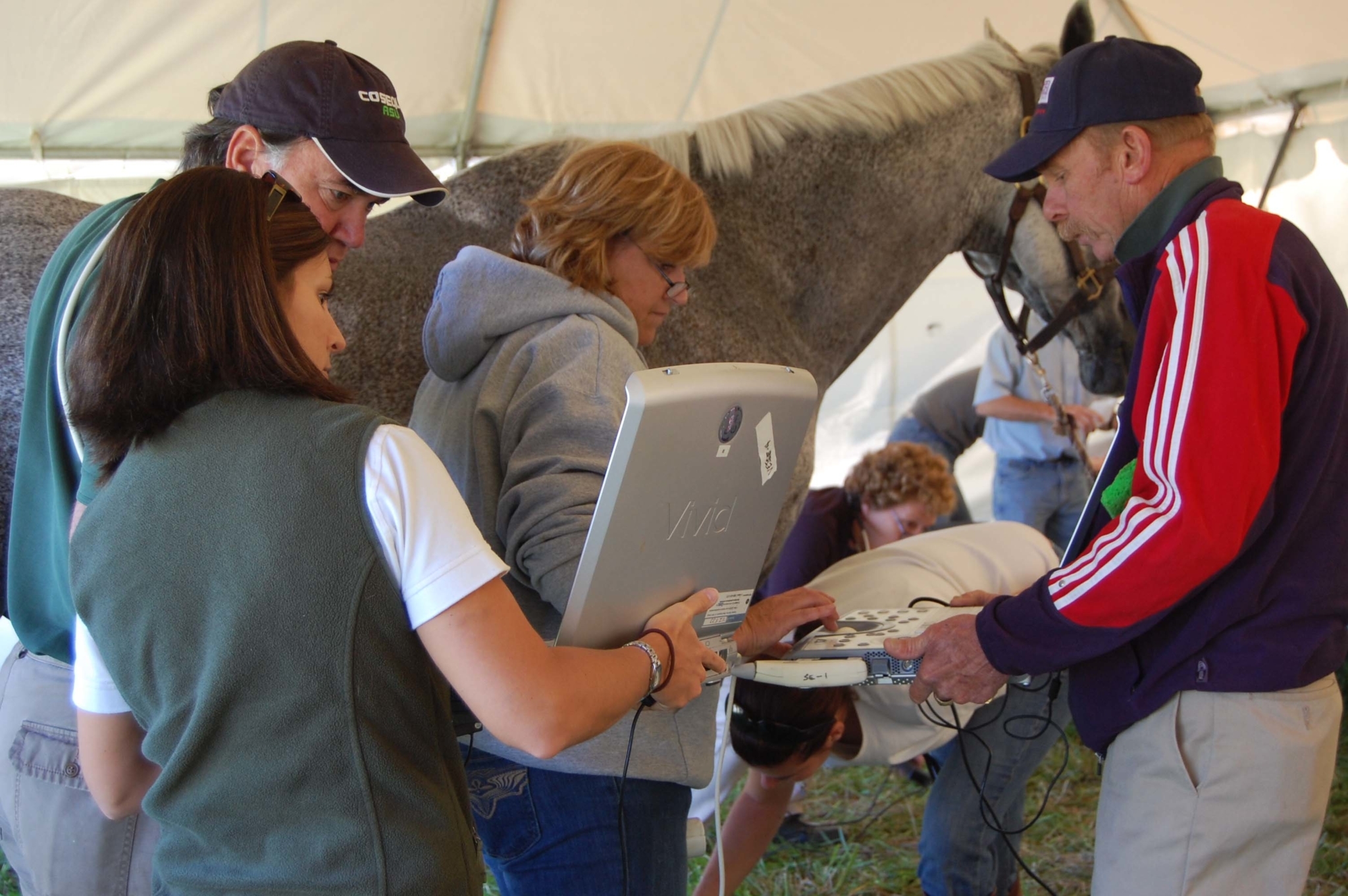
Read the updates submitted by the USEA Cardiopulmonary Research Group:
- USEA Cardiopulmonary Research Update (August 1, 2017)
- USEA Cardiopulmonary Research Group Publishes Update for 2015 (April 13, 2015)
Equestrian Helmet Use Survey
Dr. Koren Ganas of the University of Illinois College of Medicine Department of Health Sciences Education is conducting a survey on helmet use in equestrians across a variety of disciplines. The survey is designed to gather information on riders' attitudes toward wearing helmets.
Click here to learn more Dr. Ganas’ work and to take the survey.
Safety Coordinator Certification
In 2017, the USEA released an online test and certification for eventing safety coordinators. For several years, members of the USEA Safety Committee have been looking for ways to ensure that designated safety coordinators fully understand the responsibilities of the job and the development of the test was an important milestone for the USEA Safety Committee.
Click here for more information on the USEA Safety Coordinator Test.
EquiRatings Quality Index (ERQI)
In 2018, the USEA introduced the EquiRatings Quality Index, or ERQI, for all USEA registered horses. The ERQI is a risk management tool that assigns a value to each USEA competing horse. The ERQI is calculated as a probability, a number between 0 and 1, with horses closer to 1 showing statistically higher levels of positive performance in the cross-country phase. The ERQI is built on the ‘data footprint,’ (past results) of each horse and applies a marginal gains approach to improving fall rates. The ERQI system will allow USEA members to track and monitor risk in a tangible way. By providing every horse, at every level, with an ERQI, riders will have a visual indicator of risk at each specific level.
Read more about the EquiRatings Quality Index:
- VIDEO: The Future of Data Science in Eventing (February 13, 2019)
- EquiRatings Quality Index Explained (May 15, 2018)
- EquiRatings Quality Indexes ERQIs Now Available on USEA Horse Profiles (February 6, 2018)
- USEA Partners with Equestrian Sports Data Company EquiRatings (April 24, 2017)
LandSafe Clinics
The LandSafe Rider Fall Safety System is a training program designed to teach the best practices of fall prevention and response. In 2017, Danny and Keli Warrington, the founders of LandSafe, were awarded funds to help bring the system to every USEA area. The grant supplements the cost for LandSafe to travel to all ten Areas and teach the system at USEA Area camps and clinics at a greatly reduced cost for individual attendees. LandSafe provides the USEA with measurable data (before and after program assessments and videos) designed to demonstrate each Area’s progression through the program.
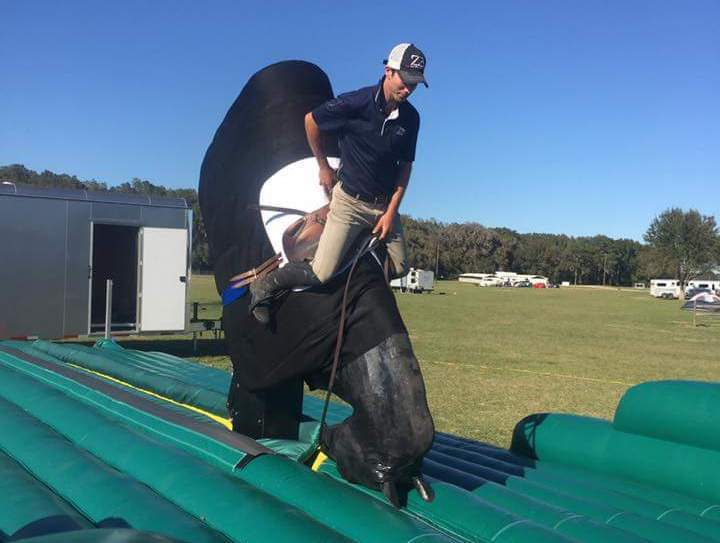
Click here to learn more about LandSafe and view LandSafe’s upcoming clinic dates.
Instructors’ Certification Program (ICP)
The USEA Instructors’ Certification Program was founded in 2002 to educate all levels of eventing instructors to confirm their knowledge base, both theoretical and practical, upon which they will continue to build throughout their teaching lifetime. By educating our instructors about safety, we help educate our riders and horses as well.
Here are some additional resources that demonstrate the USEA’s continued dedication to increasing the safety of eventing:
- Learn from Five-Star Course Builder Mick Costello at LRK3DE (April 9, 2019)
- PODCAST: Safety First + Better Management for Better Results (January 11, 2019)
- VIDEO: The Science of Conditioning and Recovery (January 2, 2019)
- USEA Board of Governors Awards Fund for Safety and Educational Projects (August 25, 2017)
- A Look Into USEA Safety Efforts with Carol Kozlowski, Jonathan Holling, and Dr. Suzanne Smith (June 8, 2016)
- Taking a Closer Look at Safety Statistics in Eventing (May 26, 2016)
You can find additional information about the different safety efforts and research studies on the Safety page and Research Studies page of the USEA website. Or, you can explore even more article relating to safety, research, and rules on the USEA Website. Just click on one of the tags below to see all articles relating to that content:
If you are interested in making a donation to support the USEA and its safety research efforts, please visit the USEA Foundation website.
Questions or comments about the USEA’s efforts to improve safety for horse and rider in the sport of eventing? Please reach out to CEO Rob Burk directly at [email protected] or (703) 779-9895.


